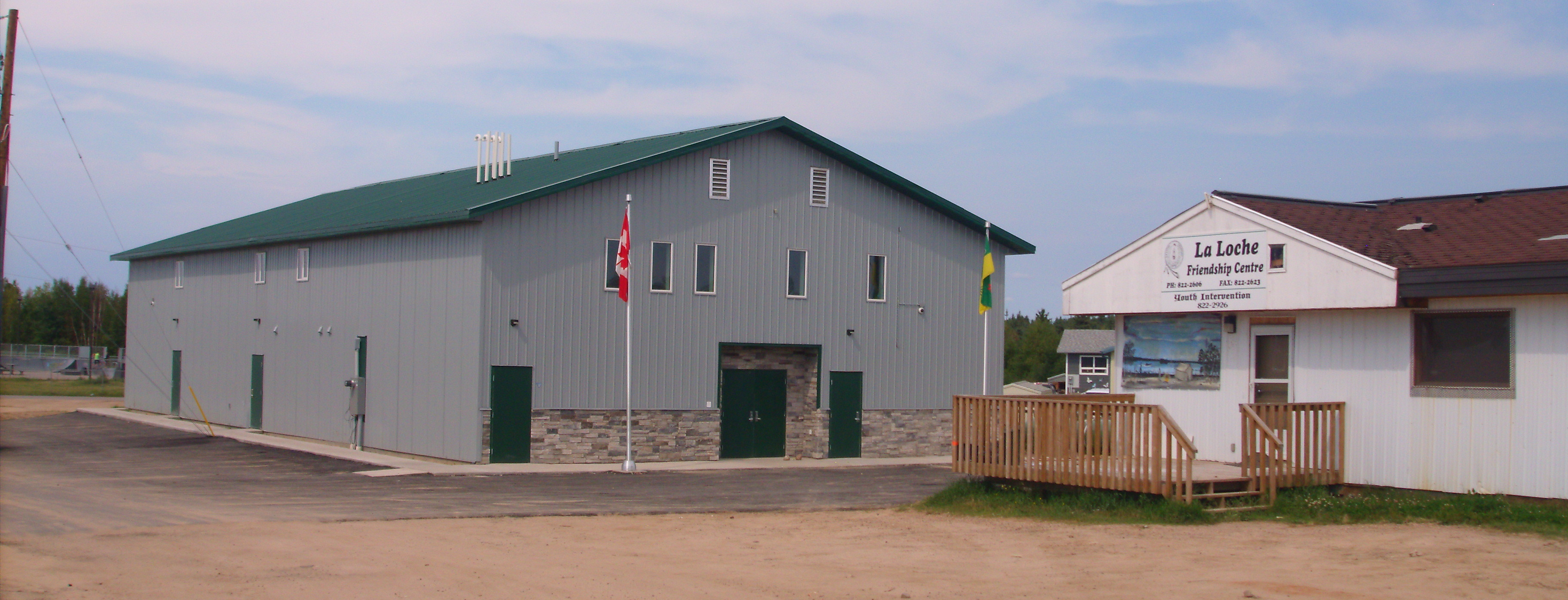Jean Cuthand Goodwill, OC, nurse, public servant and Indigenous health and education advocate (born 14 August 1928 on the Poundmaker Cree Nation, SK; died 25 August 1997 in Regina, SK). Cuthand Goodwill was one of the first Indigenous registered nurses in Canada. In 1974, she cofounded Indian and Inuit Nurses of Canada (now known as the Canadian Indigenous Nurses Association). She was a lifelong organizer, writer and educator who promoted First Nations health and culture.

Jean Cuthand Goodwill, head nurse at the nursing station in La Ronge, Saskatchewan. Photo taken in 1958.
Early Life and Education
Jean Cuthand Goodwill’s father was Cree leader and First Nations political organizer John Tootoosis. Her mother died shortly after she was born. She was adopted by Harriet and Jose Cuthand, who raised her on Little Pine First Nation in Saskatchewan. Little Pine First Nation neighbours the Poundmaker Cree Nation, where Cuthand Goodwill was born.
Harriet Cuthand was a midwife and medicine woman. She helped deliver many of the babies on Little Pine First Nation and the Poundmaker Cree Nation. She served as a role model for her adopted daughter and inspired her future career as a health worker and healer.
Cuthand Goodwill attended Little Pine School (now Chief Little Pine School) up to grade eight. Later, she moved to Saskatoon and attended Bedford Road Collegiate. She had to leave the school when she developed tuberculosis. She spent three years at the sanatorium in Prince Albert, where she completed her high school diploma.
Cuthand Goodwill studied nursing at Holy Family Hospital in Prince Albert and graduated in 1954. This made her the first Indigenous registered nurse in Saskatchewan and one of the first in Canada. Though this was a milestone, it was not unusual for the Cuthand family. Jose Cuthand, who had been a child refugee of the North-West Rebellion, believed in the power of education. He encouraged his children in their studies. Cuthand Goodwill’s two older brothers were teachers and members of the Anglican clergy.
Early Career in Nursing
Jean Cuthand Goodwill began her career at the Fort Qu’Appelle Indian Hospital before moving north to the nursing station at La Ronge. Working with a nurse’s aide and a driver, she oversaw a huge area of rural Saskatchewan. The trio was the first all-Indigenous nursing station staff in the federal Indian Health Services department. Cuthand Goodwill spent her time delivering babies, inoculating children and responding to emergencies. She also tended to minor injuries, which included pulling fish hooks out of many children and tourists.
After several years, she was exhausted by the relentless work. She moved to a hospital in Bermuda, where she worked for about two years.
Career in Government
Upon her return to Canada, Jean Cuthand Goodwill decided that providing health services for poverty-stricken people couldn’t be an end in itself. Influenced by Métis leader Jim Brady, she decided to work more proactively to improve conditions for Indigenous peoples. She took on the role of executive director of the Indian and Métis Friendship Centre in Winnipeg (see Friendship Centres).
It was there that she met Ken Goodwill from Standing Buffalo Dakota First Nation in Saskatchewan. The couple married in 1965 and moved to Ottawa the next year to start jobs in the federal public service. He worked for the Department of Secretary of State, and she joined the Department of Indian Affairs and Northern Development. She became the co-editor of Indian News, a periodical published by the Department of Indian Affairs and Northern Development. She also helped develop Tawwow, a magazine that covered First Nations arts and culture.
Return to Indigenous Health Care
After several years at the Department of Indian Affairs and Northern Development, Jean Cuthand Goodwill felt compelled to return to health care. More specifically, she wanted to support young nurses and address the need for Indigenous health workers.
In 1974, she cofounded Indian and Inuit Nurses of Canada (now known as the Canadian Indigenous Nurses Association). She served as the organization’s president from 1983 to 1990. In 1978, she became a nursing consultant for the medical services division of Health and Welfare Canada and an adviser to assistant deputy minister Lyall Black at Aboriginal Affairs. In 1981, she was appointed special adviser to Monique Bégin, minister of National Health and Welfare.
Did you know?
In 1982, Jean Cuthand Goodwill worked with author Norma Sluman on John Tootoosis: A Biography of a Cree Leader. For the book, she transcribed tape recordings of her father telling his life story.
Cuthand Goodwill also helped establish the Native Access Program to Nursing at the University of Saskatchewan. The program is now known as the University of Saskatchewan Community of Aboriginal Nursing. Following her retirement from the federal government, she and her husband moved to the Standing Buffalo reserve near Fort Qu’Appelle, Saskatchewan. She continued to work for systemic change as the department head of Indigenous Health Studies at the First Nations University of Canada.
Honours and Awards
- Inaugural Jean Goodwill Award for outstanding contributions to the health care of Indigenous peoples, Manitoba Indian Nurses Association (1981)
- Honorary Doctor of Law, Queen’s University (1986)
- Officer, Order of Canada (1991)
- National Aboriginal Achievement Award (Health Services) (1994)
- Ron Draper Health Promotion Award (posthumous), Canadian Public Health Association (2000)
- CCGS Jean Goodwill, an icebreaker named in her honour, joined the Canadian Coast Guard fleet in 2020
The Canadian Indigenous Nurses Association awards two $2,500 scholarships in Jean Goodwill’s name each year. The scholarships, sponsored by Baxter Corporation, are given to nursing students of Indigenous ancestry.

 Share on Facebook
Share on Facebook Share on X
Share on X Share by Email
Share by Email Share on Google Classroom
Share on Google Classroom












